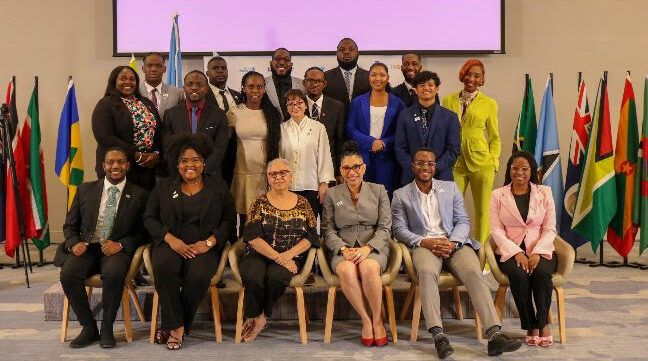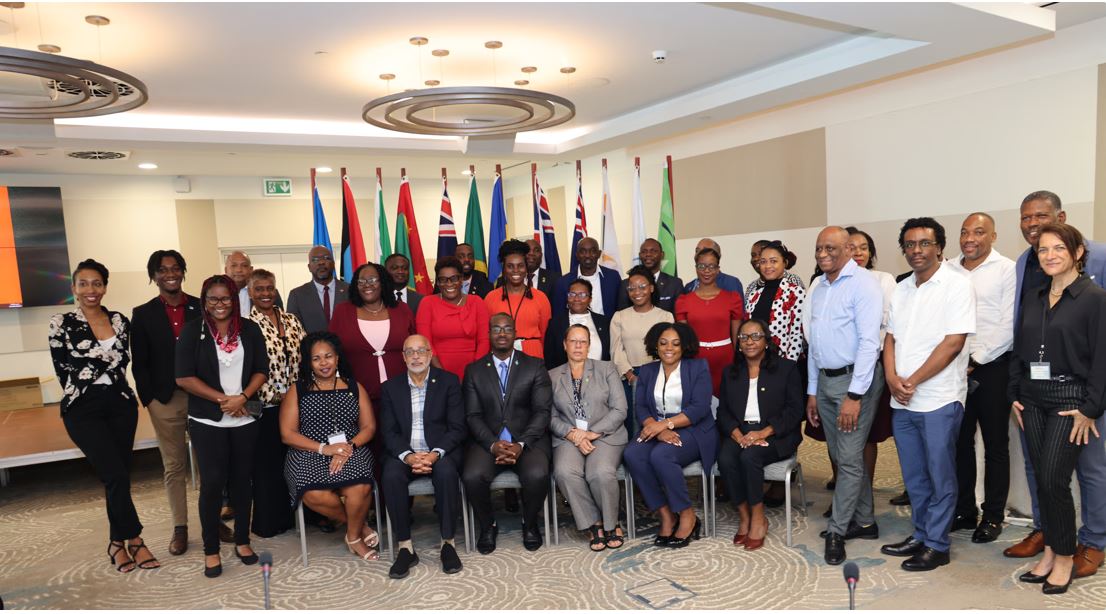How can software engineering improve Jamaican society? Seven Jamaican students from The University of the West Indies – China Institute of Information Technology (UWI-CIIT) —and Mona lecturer Dr Ezra Mugisa— had the chance to discuss this with the Prime Minister of Jamaica, Andrew Holness, during a private reception at the Mandarin Oriental, Shanghai (China) on Nov. 3.
This was the Prime Minister’s first, official visit to the People’s Republic of China.
Prime Minister Holness encouraged the students to be on the lookout for opportunities to transfer products and services from Jamaica to China, and vice versa. He also encouraged them to recognise their role in parallel diplomacy, as the friends and connections they make in China can bode well in the future for trade, investment, and innovation in Jamaica.
Students were keen to share their BSc Software Engineering experience in China with Prime Minister Holness. Discussing how software engineering could help to improve Jamaican society in practical ways, the students had an eager audience.
The reception, organised by the Caribbean Association of China, also included Jamaica’s Minister of Foreign Affairs and Foreign Trade, Senator Kamina Johnson, and Minister of Industry, Commerce, Agriculture and Fisheries — Audley Shaw, as well as President of Jamaica Promotions Corporation (JAMPRO)— Diane Edwards, members of the Jamaican Diaspora, and Chinese stakeholders.
Now in the final year of The UWI-CIIT’s BSc in Software Engineering (Mobile Application Technologies), the students are a part of a larger contingent of 26 students from the Mona and Cave Hill Campuses who are based at the Global Institute of Software Technology (GIST) in Suzhou, China. GIST was established by Microsoft (China), Suzhou Science and Technology Town, and Global EduTech Management (Suzhou) Co. Ltd.
For this four-year degree, Years 1 and 2 students are based at a UWI campus of their choice in the Caribbean, and move to China for Years 3 and 4 to benefit from GIST’s practice-based pedagogy. Students benefit from classroom teaching, project training, and practicum, as well as research, software technology and foreign language application abilities.
Commenting on the interaction, Khamoi White said, “It was quite an honour to be greeted by the Prime Minister of my home country as well as the Honourable Kamina Johnson-Smith. The efforts being made to maintain and strengthen the established bond with China are highly motivating, so I am excited to complete my studies and contribute to this effort.”

The main idea from the discussions was to create a software engineering clinic — much like a legal clinic — where any government, statutory or private body can approach The UWI-CIIT in Suzhou, China for technical assistance and software solutions tailored to their needs. Justin Seale, The UWI-CIIT’s Assistant Registrar stationed in China, agreed to explore the idea.
Producing a generation of software engineers for the Caribbean is the UWI-CIIT’s primary goal, as it seeks to lay the foundation for a much-needed digital revolution in the region. This was the impetus for Vice-Chancellor Professor Sir Hilary Beckles’ push in 2015 to solidify GIST’s and The UWI’s collaboration to create The UWI-China Institute of Information Technology. It is also a part of Vice-Chancellor Beckles’ aim to globalize The UWI’s brand, and expand the region’s opportunities.
With The UWI recently climbing in the Times Higher Education (THE) global rankings, and moving into the top four per cent of ranked universities internationally, its steadfast value creation continues to engender a progressive learning environment for its student body and assist the Caribbean in its continuous development. The University’s focal areas are closely linked to priorities identified by CARICOM, and take into account regional concerns, such as environmental issues, health and wellness, gender equity and the critical importance of innovation—all areas in which software engineering has an integral role.




